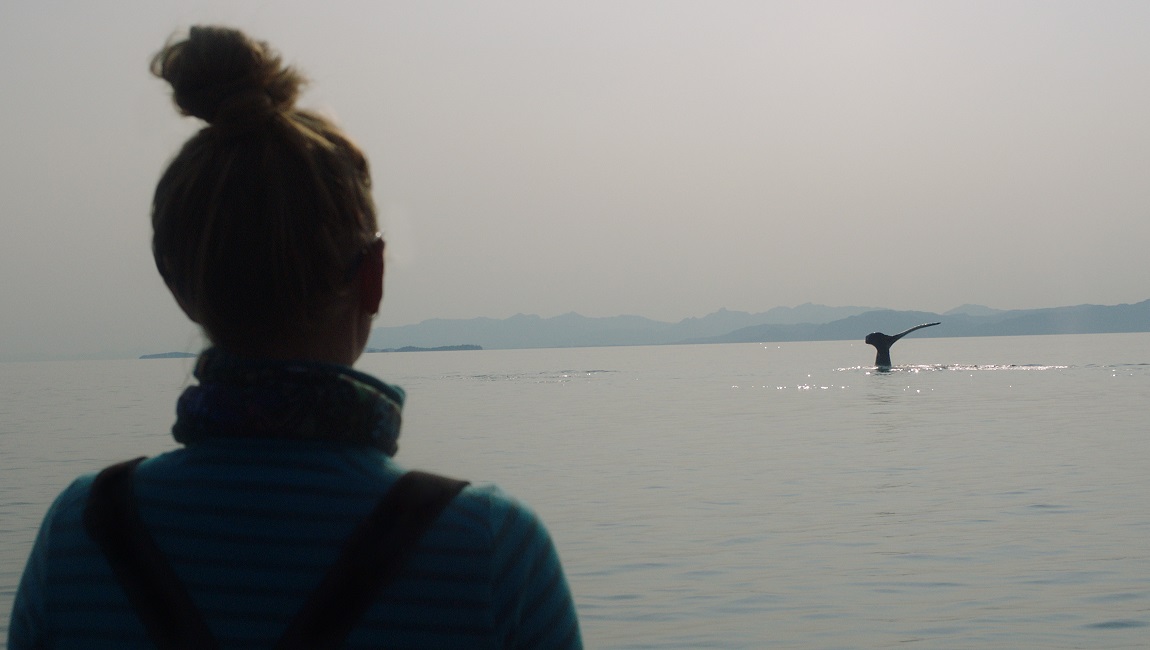Fathom sidesteps plenty of nature documentary pratfalls, but fails to develop a distinctive voice of its own.
In the wake of Planet Earth’s zeitgeist arrival in 2006 and DisneyNature’s subsequent founding a short two years later, the nature documentary — and, increasingly, docu-series — has become ubiquitous, with virtually every major streaming platform doling out a handful of (often aesthetically anonymous) offerings each year. For a certain demographic of armchair travelers, this intersection of the digital and natural worlds is catnip viewing — familiar and lulling. There may be myriad complex psychologies underlying this prevailing cultural fixation, or it may just be wanderlust, but either way, the product is being consumed, despite a profound variance in quality; all it takes is a few sweeping aerials of tropical canopies and cascading waters, some exotic locales denoted by on-screen text, and a mix of faraway animals to cover a mess of movie sins. The final point there often proves especially crucial, as few things are surer in cinema than the casual anthropomorphizing of animals and the narrativizing of their existence — much like a bevy of Disney’s animated catalog, if the DisneyNature connection wasn’t clear enough.
The latest such work to enter the house that Attenborough built, Fathom concerns itself with the business of humpback whales, but immediately sets itself apart by keeping the gargantuan creatures as distant objects of study, focusing instead on a pair of scientists — Dr. Michelle Fournet and Dr. Ellen Garland — who are conducting studies on the species’ bioacoustic ecology. Specifically, Fournet is looking for clarity on the nature of the whales’ “whup” call in relation to their interpersonal communication, while Garland is studying their haunting songs and the way they can be passed from (and traced to) pods throughout the ocean. More philosophically, the pair are part of a larger scientific inquiry into the oldest culture on the planet, one that predates humanity and speaks to a desire to more intimately know, as they put it, “the language of the natural world.” It becomes clear fairly early on that Fathom is less about whales than the people who fanatically seek to better understand them — standard looking-at-people-looking-at-animals ethnography — and, it’s implied, some grander existential truths. (The film’s title is pretty on-the-nose, but better than the unimaginative Whale or King of the Ocean that Disney would have slapped it with.) This allows for some of the film’s best scenes, such as when Fournet and a fellow scientist lament the difficulties of their intense work and travel, teary as they commiserate over their inability to ever truly “come home” anymore (again, a far cry from the juvenalia of family-facing nature docs).
Fathom further distinguishes itself with its nonchalance. It’s become de facto for films of this ilk to graft traditional story arcs onto conveniently edited footage, and so there’s a certain pleasure in seeing how director Drew Xanthopoulos not only refuses to offer conclusion, but to even suggest its possibility. His film understands from its beginning the infinitude that’s innate to the pursuit of discovery, and embraces an almost Keatsian view of living perpetually in that place of possibility: “happy boughs! that cannot shed / Your leaves, nor ever bid the Spring adieu” (“Ode on a Grecian Urn”). But while the gesture is a welcome pivot from the foregone histrionics of other docs of this genre, even at under 90 minutes the film’s urgency begins to wane and its vision destabilizes. The film admirably resists both easy moralizing and cheap nature worship, but doesn’t ultimately have much to supplant them with beyond half-thoughts. The magnitude of the ocean setting and the mammoth creatures of study gifts the film with an early sense of wonder, but for layviewers, too much of that dissipates when over-the-shoulder shots of charts reflecting slightly differentiated whale vocalizations prove to be the dramatic high points. There are some undeniably beautiful images, mostly courtesy of the Alaskan scenery, but viewers familiar with such films will likely find the dark blue waters and white sea spray underwhelming in its lack of variance, while the handheld, on-boat photography never approaches any of the gorgeous immediacy, chaos, or claustrophobia of something like Lucien Castaing-Taylor and Verena Paravel’s Leviathan. Certainly, more films should take this restrained tack with wildlife documentary filmmaking, an obvious and organic counter to the grand drama of the natural world, but in allowing itself to be defined primarily by what it’s not, Fathom never establishes what it wants to be.
You can currently stream Drew Xanthopoulos’s Fathom on Apple TV+.
Originally published as part of Tribeca Film Festival 2021 — Dispatch 6.







